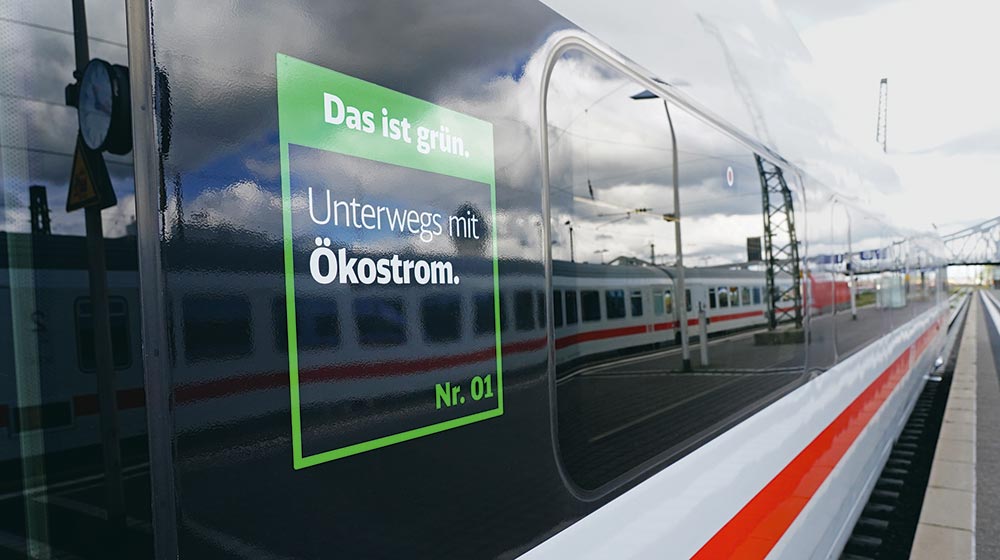
Andreas Gehlhaar
Over a year of Russian war of aggression on Ukraine. Uncertainty on the global energy markets with skyrocketing energy prices. Rising inflation and banking crisis. Many citizens, but also companies, are looking to the future with concern. These few examples show: We are currently confronted with parallel and interdependent crises as we have not been for many years. All these crises directly affect people, the economy and the environment and require short-term solutions. In such a situation, is it right to concern ourselves with questions of sustainability?
The answer is clearly yes! It is fundamentally important. Because recognizably, we as an economy and society are only conditionally crisis-proof, i.e., sustainable. This makes us vulnerable to further shocks and negative tremors.
Act decisively and consistently
The effects of climate change, global resource consumption and the loss of biodiversity by the millions have not gone away. On the contrary. Every year that we fail to find answers to these issues, the negative consequences become greater.
In Germany, we have already experienced the possible effects in a dramatic way in the summer of 2021. The floods were among the five most severe natural disasters in Europe in the past 50 years. This shows once again that we need to act now: both to take measures that work quickly and to set a fundamental course for long-term growth.
Climate neutrality by 2040
In the 2030 Agenda, the international community committed itself to combating the many crises. To this end, the UN has defined 17 Sustainable Development Goals (SDGs). In addition to measures to protect the climate and promote clean energy, the SDGs also include combating poverty and hunger and protecting life on land and in water.
We must not just look to “politics” and wait for solutions. As a business, we are better placed than almost anyone else to provide impetus for sustainable development and an overall transformation process. That is why we at Deutsche Bahn have anchored sustainability as a central purpose in our Group strategy and are driving forward the sustainable transformation of our company with the holistic Green Transformation.
The sustainability debate is currently focusing on climate protection through decarbonization. Deutsche Bahn has also committed itself to climate neutrality by 2040, for example by phasing out diesel and switching completely to renewable energies. But topics such as biodiversity and the circular economy are just as essential.
Biodiversity in view
Worldwide, around 130 animal and plant species become extinct every day. This changes our ecosystems and the basis for life as we know it. At the same time, nature conservation also contributes to climate protection and limiting global warming.
This is one of the reasons why we also take nature conservation very seriously at Deutsche Bahn and will no longer be using glyphosate from this year onwards – even though the EU has extended its approval until the end of 2023. We have already more than halved its use since 2020 compared to 2018.
As Deutsche Bahn, we are responsible for keeping around 33,400 kilometers of track free of vegetation. Vegetation in the track bed can impair its functionality. Reliable vegetation control is therefore essential for safe rail operations. This is simply not possible on this scale by purely mechanical means.
In the future, we will focus on sustainable vegetation management, which will also include the use of pelargonic acid – an active ingredient of natural origin that can be used in Germany in track areas, subject to approval by the Federal Railway Authority. Here, too, the rule is: as little as possible and as much as necessary. In the future, AI and digital processes that enable precise vegetation control will help us to do this.
Companies react
Despite a variety of efforts: Earth Overshoot Day moves forward almost annually, the day when a year’s worth of natural resources are depleted. In 2022, it was the end of July. If all people lived as we do in Germany, it would take two more Earths. That is why it is important that we realize a complete circular economy.
Many companies have recognized these challenges and have already implemented change processes. So have we at Deutsche Bahn: By 2040, we will have established a full circular economy. For example, we have started to rely increasingly on increasing recycling shares for our main resources steel, ballast and concrete. We will also maintain our high recycling rate of more than 95 percent for all waste in the future. Overall, we as DB will save at least 300,000 tons of CO2 and around 10 million tons of new material with the increased use of recycled materials.
The foundation for a sustainable transformation is to work together, not against each other. This applies to cooperation between and within companies as well as with politics, science and civil society. We as a business community can make a decisive contribution to limiting climate change, preserving animal and plant species, and achieving a full circular economy. Let’s tackle this together. (fw)
Do you have a special request?
Contact us if you would like to learn more about the efficiency of German logistics!